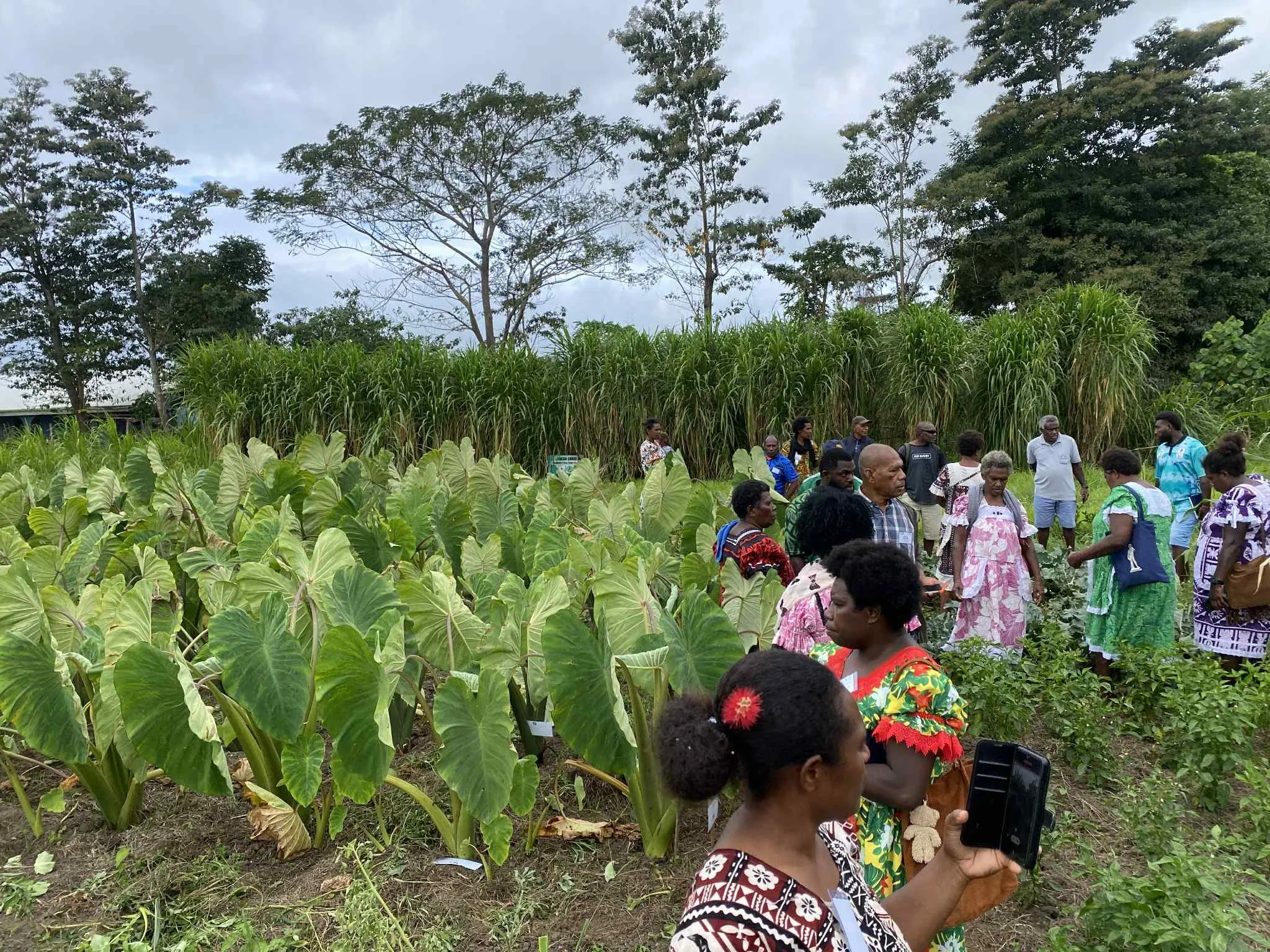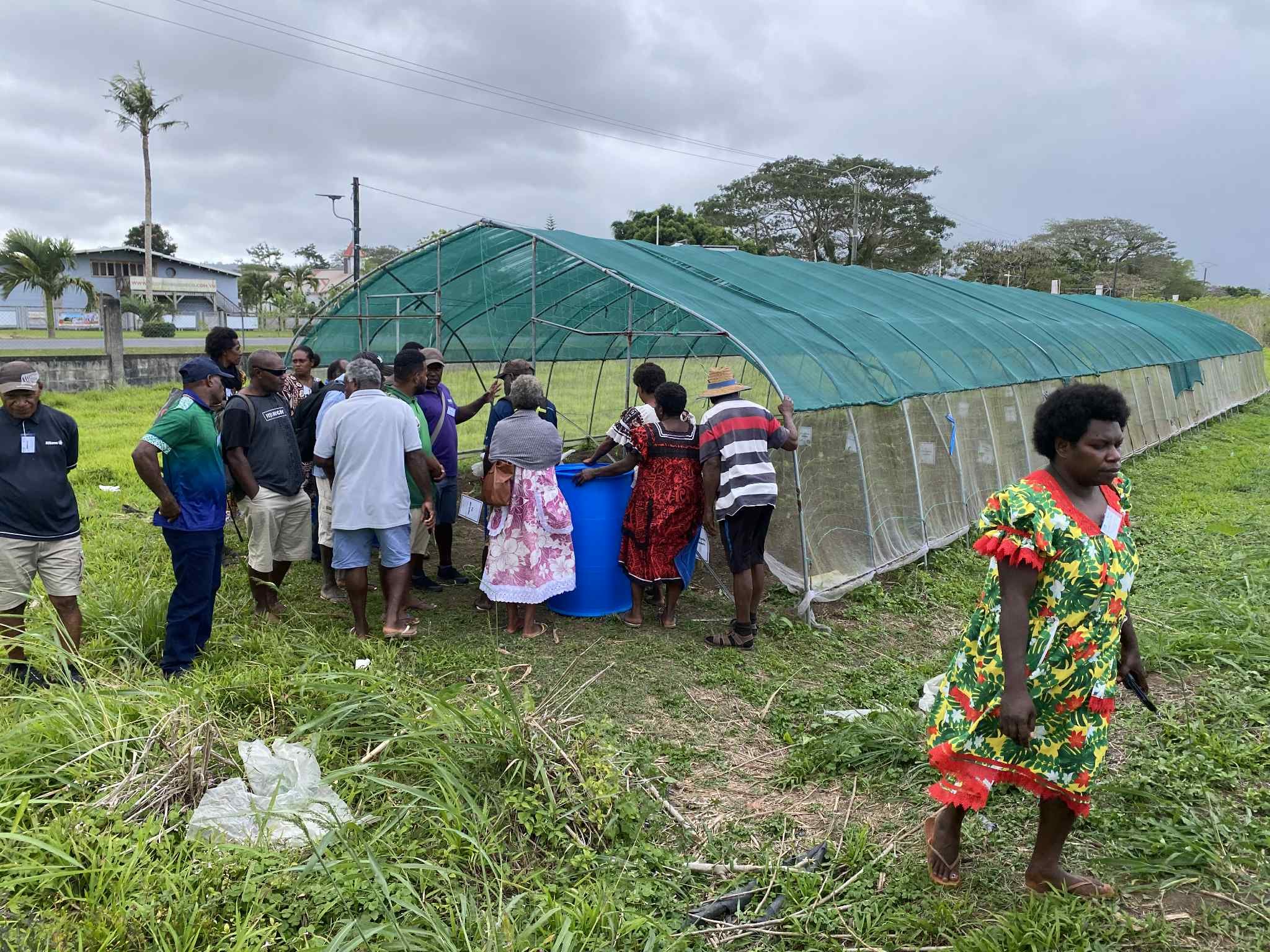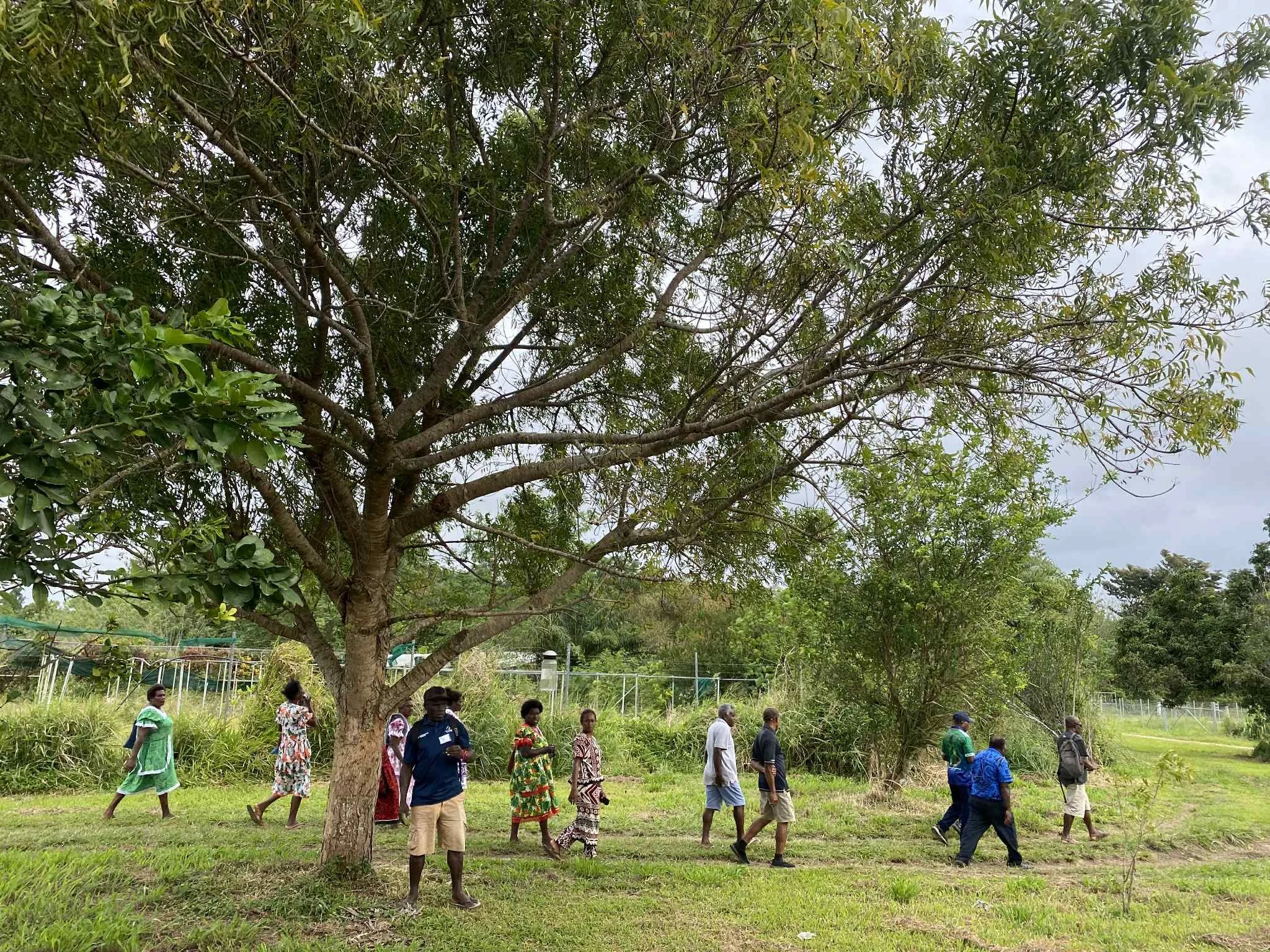Pacific Futures: Workforce in Motion
Image credit: Tevita Tukia
“Before this training, I thought farming was just what my parents did,” shared Maria from Pangpang. “Now, I see how we can shape our land—and our future—together.”
In a region where climate change and shifting economies challenge daily life, empowering local farmers is about more than food—it’s about resilience, identity, and hope. This month, as part of the Promoting Pacific Islands Nature-Based Solutions (PPIN) project, we delivered a transformative Farmer Field School (FFS) programme in Vanuatu, on behalf of the Pacific Community (SPC).
From Classroom to Community: Growing a Movement
Held at the Tagabe Agriculture Classroom, this initiative was more than a week of training. It was an investment in people, relationships, and the Pacific’s shared future. By blending FAO’s Farmer Field School methodology with hands-on fieldwork, we built the skills and confidence of local facilitators—laying the groundwork for farmer-led innovation tailored to Vanuatu’s unique needs.
Pacific Expertise Leading Pacific Futures
At the heart of this programme was Tevita Tukia, a trainer from Tonga whose experience in organic farming and participatory learning reflects the best of Pacific knowledge-sharing. Tevita didn’t just instruct—he guided participants through a process of discovery: observing crops, analysing ecosystems, testing organic methods, and deciding together which practices work best for their communities.
This Pacific-to-Pacific leadership demonstrated an important truth: the Pacific holds within it the knowledge, skills, and cultural strengths needed to solve Pacific challenges.
First-Time Training, Lasting Impact
For many of the 25 participants—farmers, organic officers, and community leaders—this was their first formal agricultural training. They travelled from villages across Efate, Nguna, and Emau: Pangpang, Epau, Lamin, Punagisu, Eton, Meten, Tanoliu, and Malafau. Each participant returned home not just with new farming practices, but with the confidence to share what they learned with neighbours, families, and wider farmer groups.
What Did They Learn?
Agro-Ecosystem Analysis (AESA): Training farmers to observe pests, natural enemies, soils, and weather, and to make evidence-based decisions.
Climate-smart, nature-based practices: Mulching, composting, water harvesting, and agroforestry—linking traditional knowledge to modern resilience.
Inclusive facilitation: Ensuring women, youth, and vulnerable groups had space and voice in every discussion.
Post-harvest handling and markets: Helping farmers connect quality produce with buyers in Vila, Luganville, and beyond.
Women Lead the Way
One of the most inspiring aspects of the programme was the leadership shown by women. Not only did they participate—they facilitated experiments, led group discussions, and shaped decisions. This reflects PCF and SPC’s commitment to Gender Equality, Disability, and Social Inclusion (GEDSI), ensuring women’s voices are not just heard, but celebrated.
By creating safe and supportive spaces, the programme reinforced women’s critical role in food security and agricultural innovation.
Beyond Training: Building Sustainable Systems
What makes this initiative unique is its focus on sustainability and scale. Each participant is now tasked with running at least one full FFS cycle in their own community within the next six months. They’ll be mentored remotely via a Vanuatu FFS Facilitator Network, supported through clinics, peer coaching, and regular check-ins.
This approach means the programme doesn’t end when the classroom closes. Instead, it becomes self-sustaining, embedding new skills into Vanuatu’s agricultural system and multiplying the impact with every new farmer group that is trained.
Over the next 12–24 months, graduates will grow into senior facilitators, co-trainers, and mentors—creating a homegrown cadre of expertise that will serve Vanuatu long into the future.
Partnership in Action: The Pacific Way
This delivery was possible because of partnerships rooted in Pacific values:
SPC (through PPIN): Commissioning and overseeing quality, ensuring alignment with regional frameworks.
Government of Vanuatu (DARD & MALFFB): Mobilising participants, providing field sites, and embedding outcomes into national systems.
PCF: Designing and delivering the training, facilitating mentoring, and capturing evidence of impact.
Together, these partners reflect the Pacific way of working: collective, respectful, inclusive, and focused on resilience.
Strengthening Identity, Deepening Relationships, Amplifying Voices
This programme illustrates PCF’s wider mission:
Strengthening Identity: Recognising Pacific peoples as the holders and sharers of their own knowledge.
Deepening Relationships: Working alongside SPC and the Government of Vanuatu to strengthen bonds across nations.
Amplifying Voices: Ensuring that farmers, women, and youth are empowered to speak, lead, and shape their futures.
Planting Seeds of Resilience
The Farmer Field School programme in Vanuatu is more than a milestone—it’s a model for how Pacific partnerships can create lasting change by placing communities at the centre, equipping them to adapt, and amplifying voices that too often go unheard.
As these new facilitators return to their villages, what seeds of change will take root next? The future of Pacific agriculture is in their hands—and ours.
PCF is proud to have delivered this programme on behalf of SPC, and we thank the people of Vanuatu for their participation and leadership. Together, we are planting seeds of resilience that will grow across the Pacific for generations to come.











